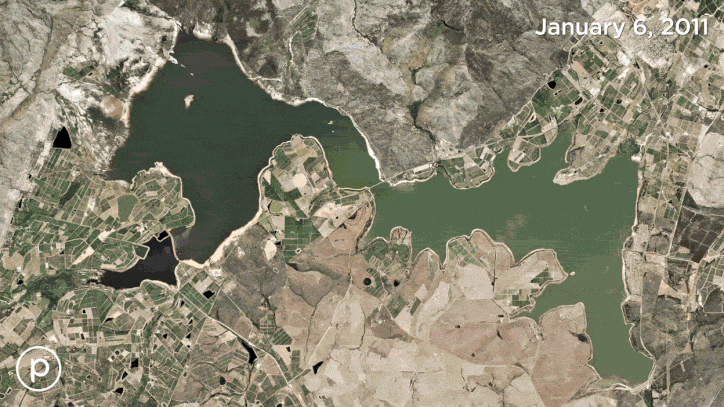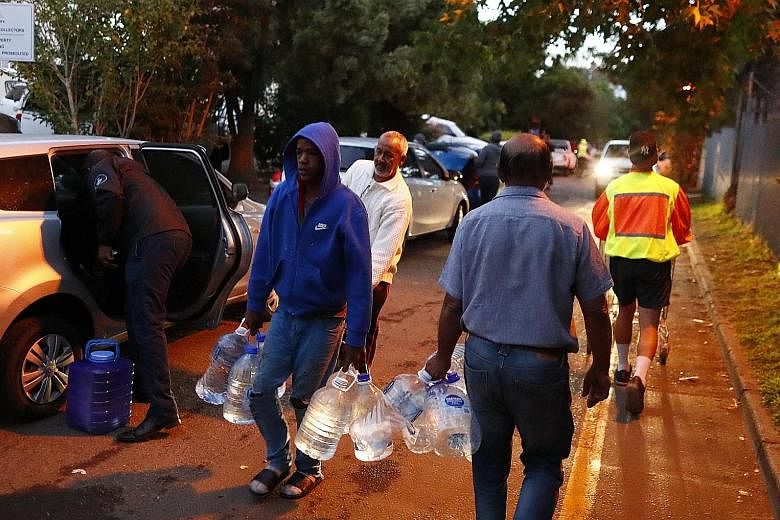CAPE TOWN • It sounds like a Hollywood blockbuster: "Day Zero" is coming to Cape Town this April.
Residents, their nerves increasingly frayed, speak in whispers of impending chaos - the city's water supply is dangerously close to running dry. If water levels keep falling, Cape Town will declare Day Zero in less than three months.
Taps in homes and businesses will be turned off until the rains come. The city's four million residents will have to line up for water rations at 200 collection points. It is bracing for the effect on public health and social order.
"When Day Zero comes, they'll have to call in the army," said Mr Phaldie Ranqueste, who was filling his white sport utility vehicle (SUV) with big containers of water at a spring where people waited in a long, anxious line.
It was not supposed to turn out this way for Cape Town. This city is known for its strong environmental policies, including its careful management of water in an increasingly dry corner of the world.
But after a three-year drought, considered the worst in over a century, South African officials say Cape Town is now at serious risk of becoming one of the few major cities in the world to lose piped water to homes and most businesses. Hospitals, schools and other vital institutions will still get water, but the scale of the shut-off will be severe.
Cape Town's problems embody one of the big dangers of climate change: the growing risk of powerful, recurrent droughts. In Africa, a continent particularly vulnerable to the effects of climate change, those problems serve as a potent warning to other countries.
Cape Town is scrambling to finish desalination plants and raise groundwater production. Starting this month, residents will face harsher fines if they exceed their new daily limit of 50 litres a day per person, down from 87 litres now.

Just a couple of years ago, the situation could not have looked more different. In 2014, the dams stood full after years of good rain. The following year, C40, a collection of cities focused on climate change worldwide, awarded Cape Town its "adaptation implementation" prize for its water management.
But the city's water conservation measures - fixing leaks and old pipes, installing meters and adjusting tariffs - had a powerful effect. Maybe too powerful. The city conserved so much water that it postponed looking for new sources.
For years, Cape Town had been warned that it needed to increase and diversify its water supply. Almost all of its water still comes from six dams dependent on rainfall, a risky situation in an arid region with a changing climate. The dams, which were full only a few years ago, are now down to about 26 per cent of capacity, officials say.
Deputy mayor Ian Neilson said new water supplies have been part of the city's plans but it did not expect " it would be required so soon".
The water shortages have strained political divisions, especially because much of the responsibility for building water infrastructure lies with the national government led by the African National Congress.
The city is stepping up its efforts to cut usage. Mr Neilson said he was acutely aware of the need to scare people into changing their behaviour without causing them to panic. "I don't think we have quite got that right yet," he said.
So far, only 55 per cent of residents have met the current target of 87 litres per day.
NYTIMES

